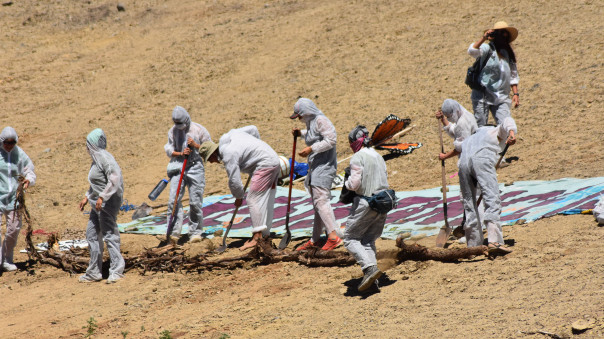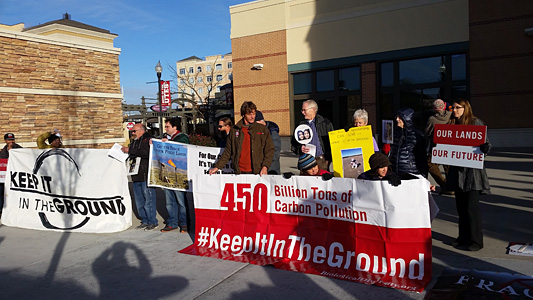“Contemporary public concern for protecting nature’s ecological equilibrium should lead to the conferral of standing upon environmental objects to sue for their own preservation.” Supreme Court Justice William O. Douglas, Sierra Club v. Morton (1972)

The 2015 Gold King Mine waste water spill in the Animas River, in southwest Colorado. The Animas is a tributary to the Colorado River.
Denver, Colorado–In a first-in-the-nation lawsuit filed in federal court, the Colorado River is asking for judicial recognition of itself as a “person,” with rights of its own to exist and flourish. The lawsuit, filed against the Governor of Colorado, seeks a recognition that the State of Colorado can be held liable for violating those rights held by the River.
The Plaintiff in the lawsuit is the Colorado River itself, with the organization Deep Green Resistance – a national organization committed to protecting the planet through direction action – filing as a “next friend” on behalf of the River. The River and the organization are represented in the lawsuit by Jason Flores Williams, a noted civil rights lawyer and lead attorney in a recent class-action case filed on behalf of Denver’s homeless population.
While this is the first action brought in the United States which seeks such recognition for an ecosystem, such actions and laws are becoming more common in other countries. In 2008, the country of Ecuador adopted the world’s first national constitution which recognized rights for ecosystems and nature; over three dozen U.S. municipalities, including the City of Pittsburgh, have adopted similar laws; and courts in India and Colombia have recently recognized that rivers, glaciers, and other ecosystems may be treated as “persons” under those legal systems.
Serving as an advisor to the lawsuit is the Community Environmental Legal Defense Fund (CELDF), a nonprofit public interest law firm which has previously assisted U.S. municipalities and the Ecuadorian government to codify legally enforceable rights for ecosystems and nature into law.
Attorney Flores-Williams explained that “current environmental law is simply incapable of stopping the widescale environmental destruction that we’re experiencing. We’re bringing this lawsuit to even the odds – corporations today claim rights and powers that routinely overwhelm the efforts of people to protect the environment. Our judicial system recognizes corporations as “persons,” so why shouldn’t it recognize the natural systems upon which we all depend as having rights as well? I believe that future generations will look back at this lawsuit as the first wave of a series of efforts to free nature and our communities from a system of law which currently guarantees their destruction.”
Deanna Meyer, a member of Deep Green Resistance and one of the “next friends” in the lawsuit, affirmed Flores-Williams’ sentiments, declaring that “without the recognition that the Colorado River possesses certain rights of its own, it will always be subject to widescale exploitation without any real consequences. I’m proud to stand with the other “next friends” in this lawsuit to enforce and defend the rights of the Colorado, and we’re calling on groups across the country to do the same to protect the last remaining wild places in this country and beyond.”
The lawsuit seeks recognition by the Court that the Colorado River Ecosystem possesses the rights to exist, flourish, regenerate, and restoration, and to recognize that the State of Colorado may be held liable for violating those rights in a future action. The complaint will be filed in the US District Court of Colorado on Tuesday.
Media inquiries:
Law Office of Jason Flores-Williams
303-514-4524
Thomas Linzey, Executive Director, CELDF
717-977-6823






![Keith Leavitt (left), Joshua Laurio (third from left), Gabriel Laurio and Jeffery Tranter protested in front of the Grand County Courthouse last year in support of motorized access to public lands. Prosecutors have charged the four men with numerous felonies in connection with an alleged assault and kidnapping last month. [Moab Sun News file photo]](/wp-content/uploads/sites/15/2016/01/5697c6ff0517b.image_.jpg)
